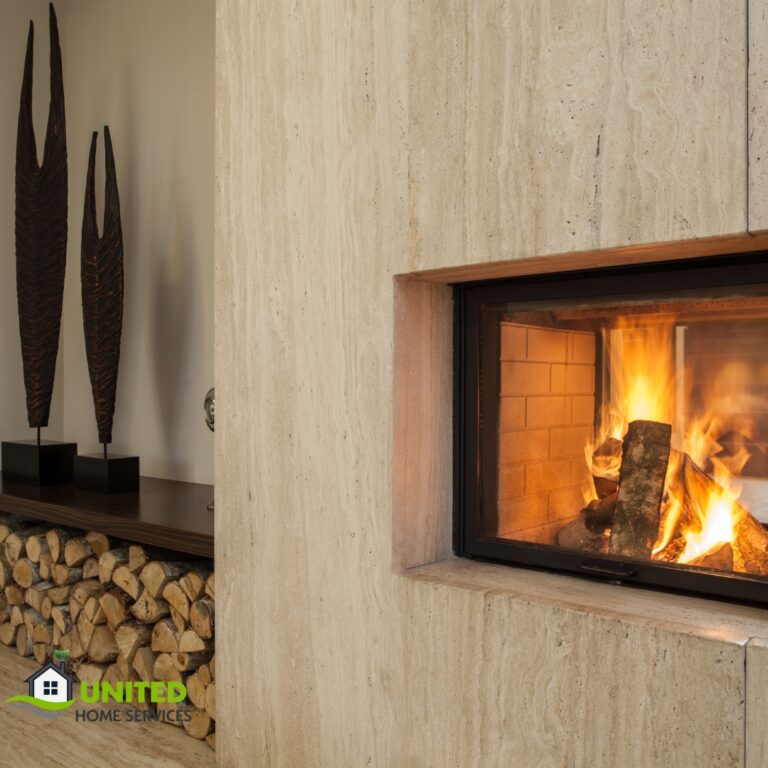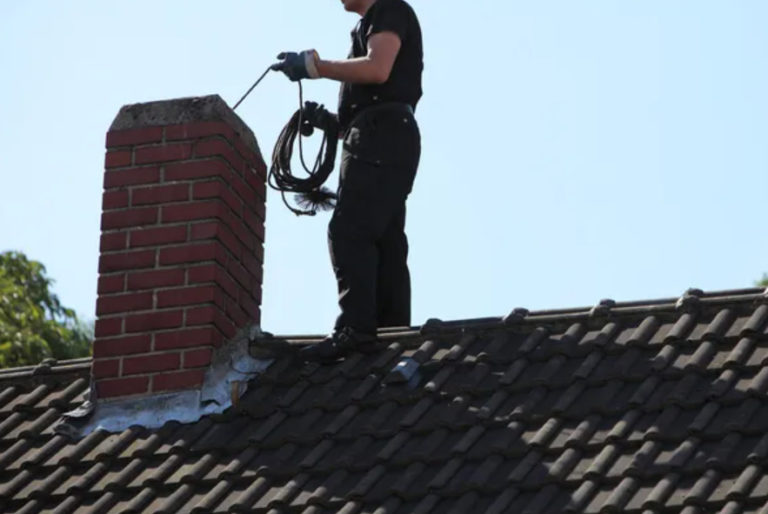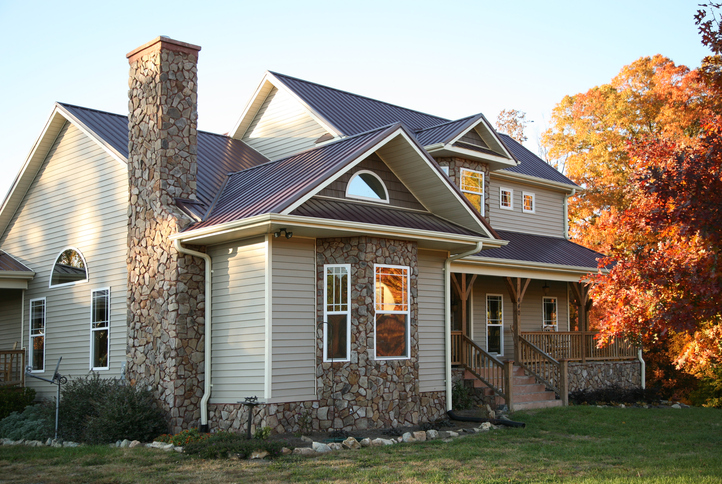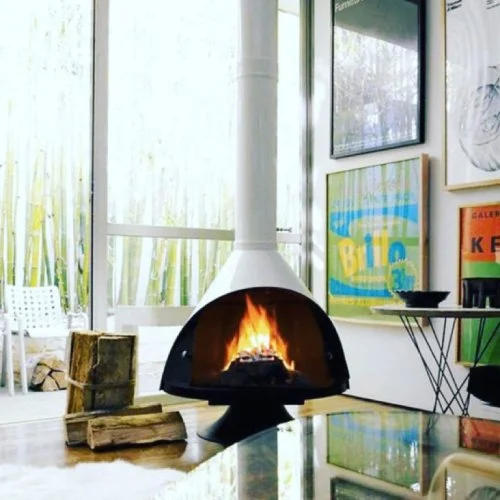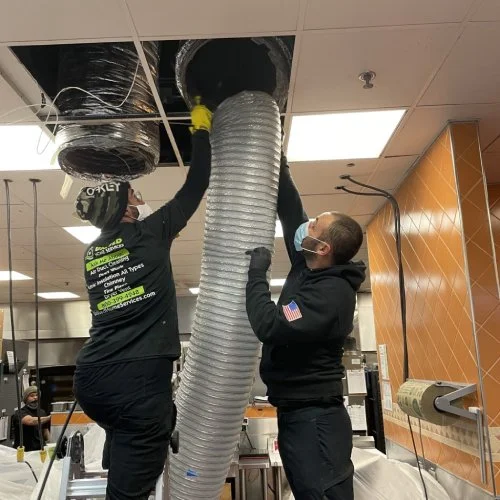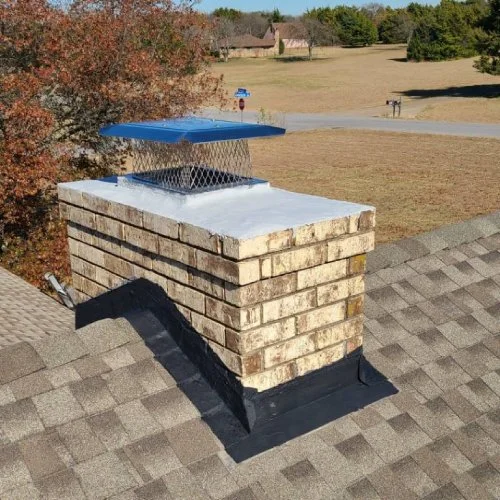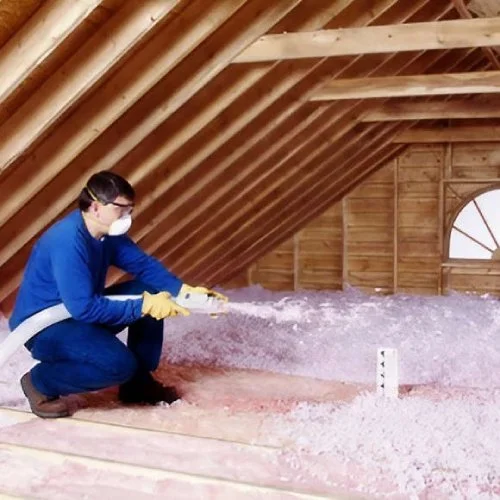Knowing exactly how often chimneys should be cleaned and inspected can be a bit of a mystery. Some homeowners have their chimneys cleaned once a year, some do it every few months, and some can’t remember the last time their chimneys received any attention at all!
According to the Chimney Safety Institute of America (CSIA), your chimney should be thoroughly inspected and swept at least once a year – regardless of how often you use it or how modern your fireplace is. In fact, if you don’t use your fireplace and chimney on a regular basis, you are in most need of sweeping because you may not notice performance issues that indicate bigger problems.
How Often Should Chimneys Be Cleaned And Inspected
The National Fire Protection Agency is in agreement with the CSIA; they recommend that your fireplace, chimney, and vents should be inspected at least every 12 months for correct clearances, freedom from deposits, and soundness.
If it turns out during the initial inspection that the chimney and/or the fireplace need any services, you should have it addressed right away. So, the rule of thumb is to call a professional chimney sweep every year, so you can have the peace of mind you need to enjoy using your well-maintained fireplace throughout the year.
Signs Your Chimney Needs To Be Cleaned
While annual cleaning and upkeep are recommended for all homeowners, there are certain signs that indicate it’s time to have the chimney swept.
You Use the Fireplace Frequently
If you use your stove or fireplace pretty often, especially as a primary heat source, you may need to call the chimney sweep more than once a year.
CSIA suggests that your chimney should be cleaned any time the soot accumulation reaches 1/8th of an inch. This usually happens after you’ve burned a full cord of wood. If you are burning more than one full cord during a single burning season, you should call the chimney sweep at least twice a year.
Your Fireplace Has Been Inactive For A While
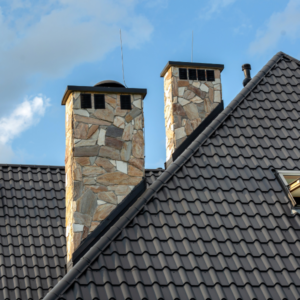 If it’s been several weeks or years since you last used the fireplace, the chimney may have accumulated animal nests, dried leaves and twigs, and other debris. So, before you ignite a fire and start using the fireplace, call a chimney sweep – even if the last cleaning was less than a year ago.
If it’s been several weeks or years since you last used the fireplace, the chimney may have accumulated animal nests, dried leaves and twigs, and other debris. So, before you ignite a fire and start using the fireplace, call a chimney sweep – even if the last cleaning was less than a year ago.
Your Chimney Is Displaying Performance Issues
Do you smell a weird odor coming from the chimney even when the fireplace is not burning? Does the room fill with smoke whenever you use the fireplace? Is the fire not burning strong enough, as it used to?
If you answered “yes” to any of these questions, it’s time to schedule a chimney sweeping appointment. If you’re wondering how often chimneys should be cleaned and inspected, in this case, the answer is as soon as you notice a problem with it.
Call a Certified & Experienced Chimney Sweep Today
Unlike your state-of-the-art oven, a chimney doesn’t come with a self-cleaning option (though, it would be nice…). Neglected fireplaces and chimneys can wreak havoc on the structure of your beloved home, so it’s best to schedule a chimney inspection and cleaning at least once a year.
If you’re still not sure how often chimneys should be cleaned and inspected, call us and we will give you a precise answer after inspecting your chimney. You can reach us at 844-415-1543 or leave us a message online.
- Chimney Sweep in Addison, TX
- Chimney Sweep in Allen, TX
- Chimney Sweep in Anna, TX
- Chimney Sweep in Arlington, TX
- Chimney Sweep in Balch Springs, TX
- Chimney Sweep in Bedford, TX
- Chimney Sweep in Benbrook, TX
- Chimney Sweep in Blue Mound, TX
- Chimney Sweep in Blue Ridge, TX
- Chimney Sweep in Carrollton, TX
- Chimney Sweep in Cedar Hill, TX
- Chimney Sweep in Colleyville, TX
- Chimney Sweep in Copeville, TX
- Chimney Sweep in Coppell, TX
- Chimney Sweep in Crowley, TX
- Chimney Sweep in Dallas, TX
- Chimney Sweep in Dalworthington Gardens, TX
- Chimney Sweep in DeSoto, TX
- Chimney Sweep in Duncanville, TX
- Chimney Sweep in Euless, TX
- Chimney Sweep in Everman, TX
- Chimney Sweep in Fairview, TX
- Chimney Sweep in Farmers Branch, TX
- Chimney Sweep in Farmersville, TX
- Chimney Sweep in Forest Hill, TX
- Chimney Sweep in Fort Worth, TX
- Chimney Sweep in Frisco, TX
- Chimney Sweep in Garland, TX
- Chimney Sweep in Glenn Heights, TX
- Chimney Sweep in Grand Prairie, TX
- Chimney Sweep in Grapevine, TX
- Chimney Sweep in Haltom City, TX
- Chimney Sweep in Haslet, TX
- Chimney Sweep in Hurst, TX
- Chimney Sweep in Hutchins, TX
- Chimney Sweep in Irving, TX
- Chimney Sweep in Josephine, TX
- Chimney Sweep in Justin, TX
- Chimney Sweep in Keller, TX
- Chimney Sweep in Kennedale, TX
- Chimney Sweep in Lancaster, TX
- Chimney Sweep in Mansfield, TX
- Chimney Sweep in McKinney, TX
- Chimney Sweep in Melissa, TX
- Chimney Sweep in Mesquite, TX
- Chimney Sweep in Murphy, TX
- Chimney Sweep in North Richland Hills, TX
- Chimney Sweep in Plano, TX
- Chimney Sweep in Princeton, TX
- Chimney Sweep in Prosper, TX
- Chimney Sweep in Red Oak, TX
- Chimney Sweep in Rendon, TX
- Chimney Sweep in Richardson, TX
- Chimney Sweep in Rowlett, TX
- Chimney Sweep in Sachse, TX
- Chimney Sweep in Saginaw, TX
- Chimney Sweep in Southlake, TX
- Chimney Sweep in University Park, TX
- Chimney Sweep in Watauga, TX
- Chimney Sweep in White Settlement, TX
- Chimney Sweep in Wylie, TX

